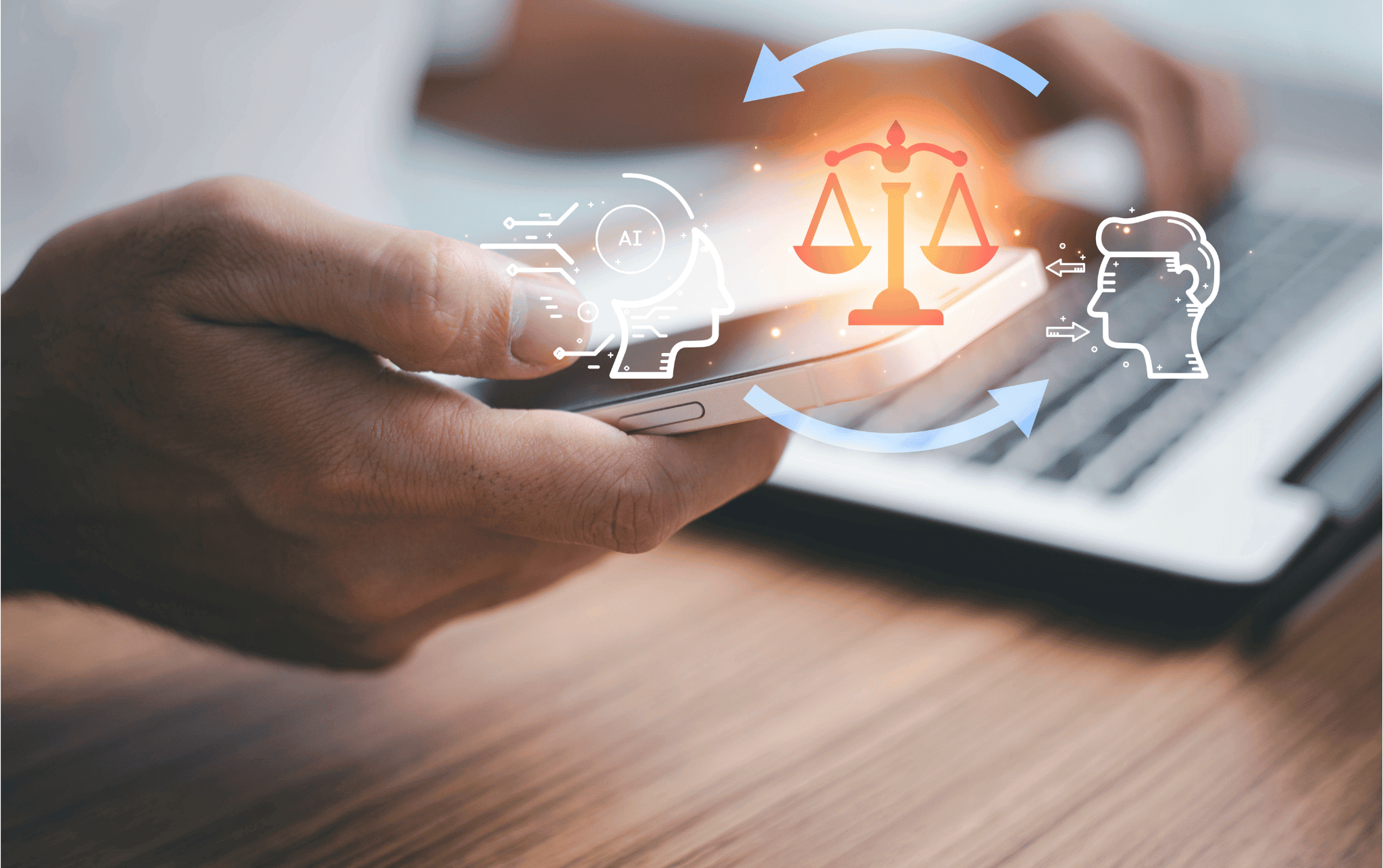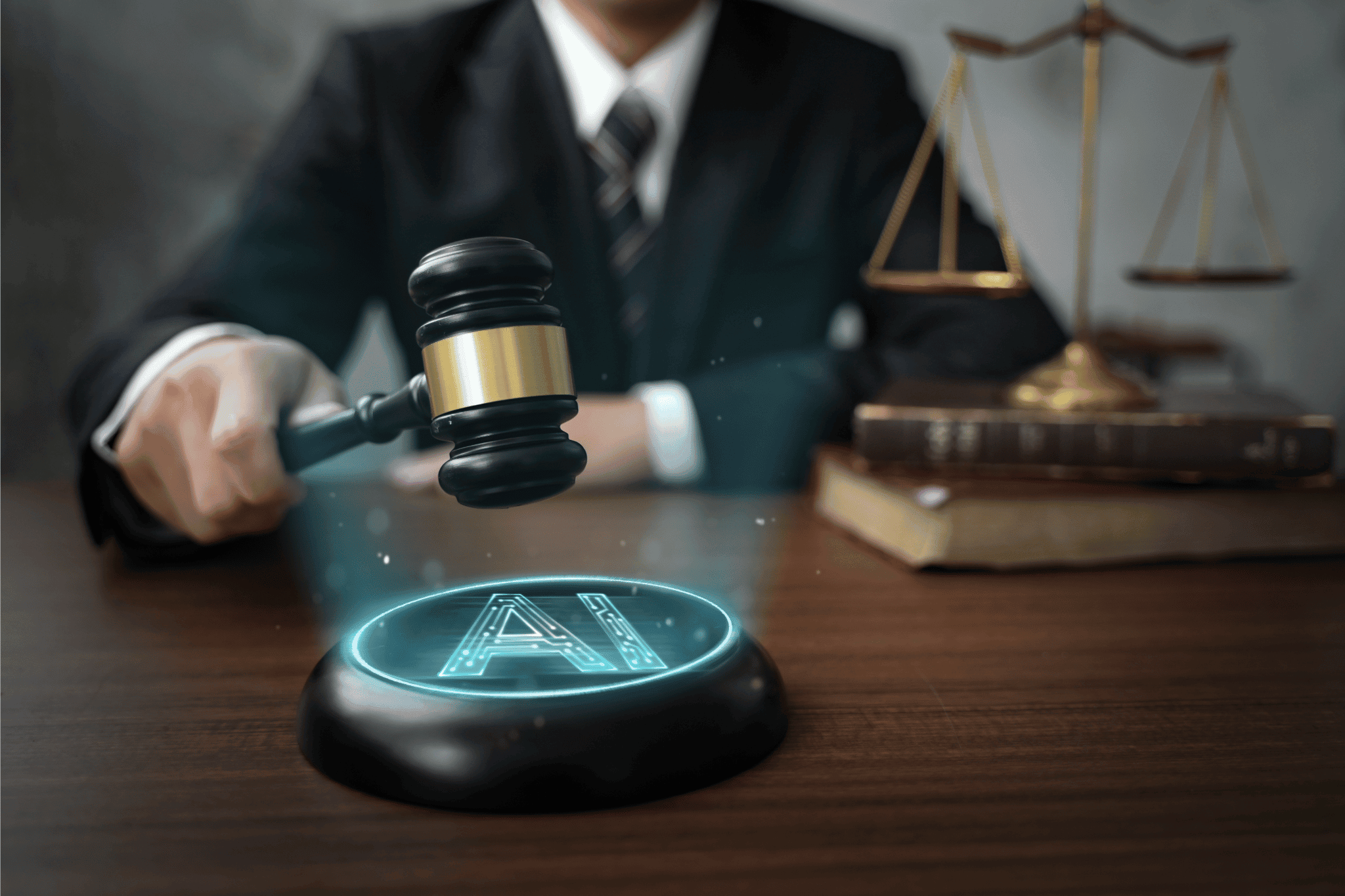Artificial intelligence has introduced the world to fantastic features and gadgets that have truly become a part of everyday life for many people across many walks of life. One such technology that offers excellent potential is the AI chatbot. ChatGPT is one of the best-known of this new breed of generative AI. But what is it, and what uses can be found for it in the legal field?
In this article, we will discuss:
How ChatGPT affects the law sector
How might ChatGPT be able to aid lawyers?
What are some of the pitfalls of ChatGPT?
What is ChatGPT?
ChatGPT is the latest artificial intelligence chatbot developed by OpenAI, designed to interact with humans on a question/answer basis. It is currently free for the public to use, but there is also a premium service that can be accessed via a paid subscription.
Its ability to process natural language allows you to have regular conversations with the chatbot. For instance, you can ask it to help compose an email, contract, essay, or other forms of long text you may need help with.
Lots of different industries across the globe use it already, and the legal field is no exception. In fact, law firms who get ahead and adopt and utilize AI tech will likely find themselves in a better position than those who don't. As it may soon be the norm, other firms who fail to adopt the tech may find it harder to keep up in the future.
The implications of ChatGPT on the legal profession
ChatGPT has vast implications for the legal profession. Many law firms are getting ahead of the curve and are already jumping on board with the exciting new technology. They're learning how it can complement their workflow and simplify their daily tasks.
For instance, it’s changing the way lawyers manage their workload. ChatGPT can assist lawyers in tasks such as:
Initial client communications
This means they can use their time and resources more efficiently and give more attention to other vital aspects of case management—maintaining strong relationships or giving time to clients needing extra special attention.
However, the technology has struggled to win everyone around. Until recently, Italy had imposed a ban on ChatGPT. The Italian Data Protection Authority (GPDP) felt ChatGPT was unlawfully collecting users’ data, so ChatGPT was blocked in the country. The authority gave OpenAI 20 days to address the issues and said in mid-April 2023 that ChatGPT could return if it did so by April 30th. ChatGPT has since been welcomed back after addressing and clarifying the GPDP’s concerns.
Of course, in the legal profession, working with a tool that could potentially risk users’ data is a red flag, so lawyers must remain vigilant while working with ChatGPT.
However, let's remember that the technology was created to assist humans. It can be invaluable when it comes to performing menial tasks that no one really wants to have to deal with—like sifting through tedious paperwork. In fact, Allen & Overy said it had chosen to partner with ChatGPT creator OpenAI to introduce a chatbot that will help its lawyers with legal tasks—such as contract analysis, due diligence, and regulatory compliance.
Ideally, real people should critically review all AI-generated content to ensure everything it produces is accurate. Lawyers are also responsible for ensuring that AI tools are compliant with data protection laws and taking extra measures to protect client information.
The benefits of ChatGPT for lawyers
There are a lot of benefits of ChatGPT for lawyers, such as:
Legal research
ChatGPT can effectively assist lawyers in their legal research; all you have to do is type your question into the platform, and it will help by generating explanations of legal matters and concepts.
The clever technology for law firms can quickly search through vast amounts of legal information, which it can then summarize for lawyers.
Contract review and analysis
Lawyers can also use ChatGPT to review and analyze contracts. It can help them identify potential problems they may have missed. ChatGPT can also suggest modifications and provide explanations for specific contract clauses.
Valuable insights
ChatGPT for lawyers can help firms by offering valuable insights into specific legal topics that apply to their unique cases. This has the potential to save hours spent on independent research.
Drafting documents
Another handy benefit of ChatGPT is that it can help draft legal documents such as:
General client correspondence
Lawyers can use the technology to generate initial drafts of legal documents. While they still need to review the information to ensure accuracy, ChatGPT can set them off to a solid start.
Client communication
Using AI features like ChatGPT can help maintain consistency in communication regarding correspondence with clients. With the correct prompts, it can keep the professional tone and style expected from a lawyer’s office.
Lawyers can also use it to break down legal jargon and explain legal processes to clients in plain English. This can pave the way for better customer relationships and enhance client satisfaction.
24/7 accessibility
As we all know, lawyers don’t always conform to the typical 9-5 working hours. One great thing about ChatGPT for lawyers is that its tools are available around the clock. Lawyers can use it for assistance and to generate content outside regular business hours.
How lawyers can use ChatGPT: Helpful prompts
So, you’ve heard all about how ChatGPT can be helpful to lawyers, but how do you actually communicate with it to get the response you’re after?
Prompts to help with legal research
Please provide an overview of the legal principles surrounding [specific topic].
Can you summarize the key points of [case name] and the impact on [specific area of law]?
Please list the elements that must be proven for a successful claim of [legal concept].
Best ChatGPT prompts for lawyers to draft legal documents
Draft a [type of document] with a focus on [specific details].
Please write a contract clause about [specific provision] that ensures [desired outcome].
Create a letter of demand for [specific situation] that communicates [desired tone].
Prompts for improved client communication
Help explain the process of [legal process] to a client in clear terms.
Provide a concise reply to a client asking about [common legal query].
Draft an email to a client telling them about the recent developments in their case of [case name].
Prompts for brainstorming ideas
Brainstorm innovative legal solutions for [legal problems].
Please generate alternative dispute resolution options for a case involving [parties and issues].
Provide ideas to address the legal and ethical concerns raised by [legal trend].
ChatGPT and lawyers: Limitations and a cautionary tale
Using ChatGPT isn’t always smooth sailing, and some high-profile instances have highlighted the drawbacks of over-relying on it.
Steven A. Schwartz, who has been practicing law in New York for 30 years, decided to use ChatGPT to craft a motion. But this motion turned out to be “filled with fake judicial opinions and legal citations, all generated by ChatGPT,” according to the New York Times. “In the declaration, Mr. Schwartz filed this week, he described how he had posed questions to ChatGPT, and each time, it seemed to help with genuine case citations,” the article said. In fact, the cases had been completely fabricated and were, as the judge put it, gibberish.
So, while ChatGPT can assist lawyers in their tasks, it's important to remember that nothing comes close to human-backed experience.
It’s also worth remembering that ChatGPT’s knowledge base only goes up to 2021, so it isn’t aware of the most contemporaneous information or legislation.
Embrace the benefits of AI at your legal firm
If you’re looking for a tool that will unlock the expansive capabilities of AI throughout every phase of a case, maintaining consistency and efficiency within your case management platform, consider Neos.
Unlike other case management platforms that require you to exit the system to utilize AI technology—interrupting your concentration and adding an extra manual step to bring the AI content back into your case management software—NeosAI is embedded within the Neos case management platform, seamlessly accelerating your productivity in pre-existing workflows.
Schedule a demo of Neos today!




